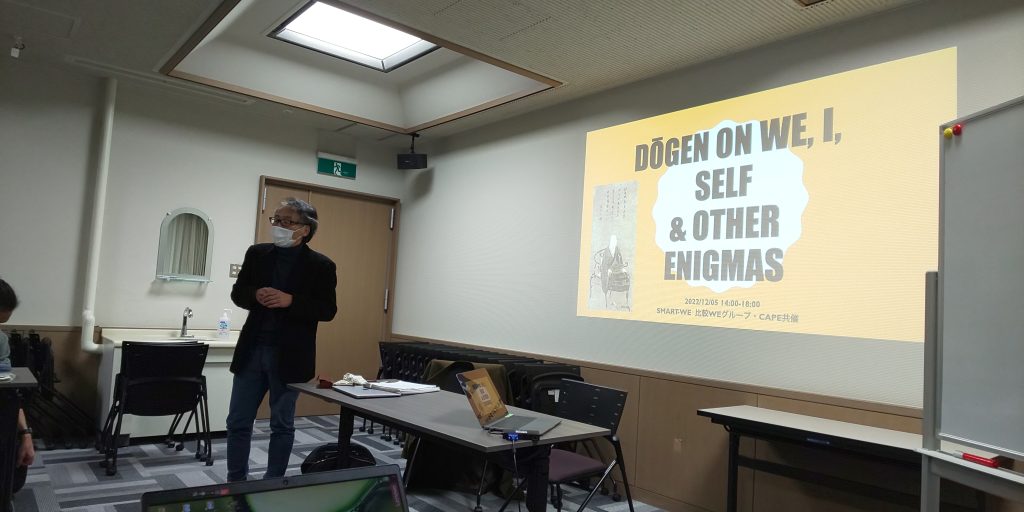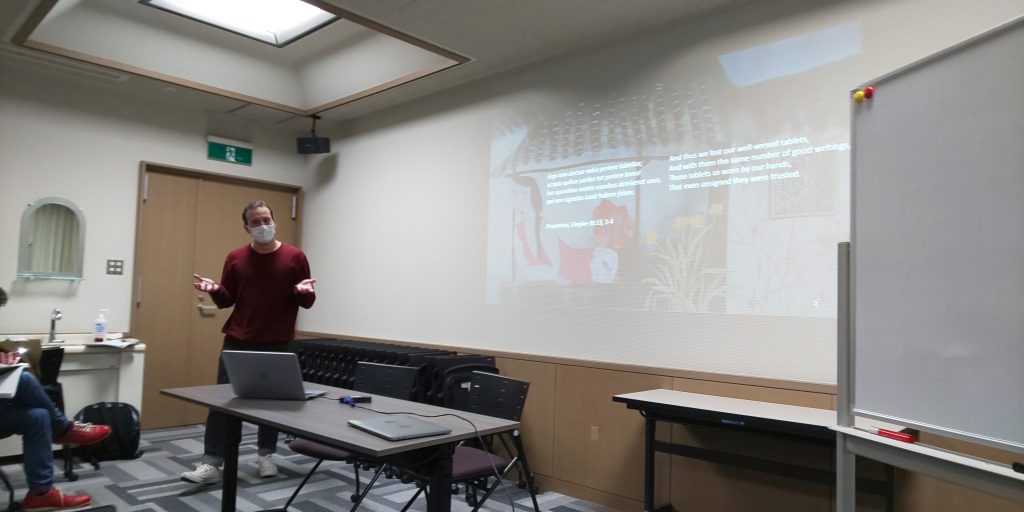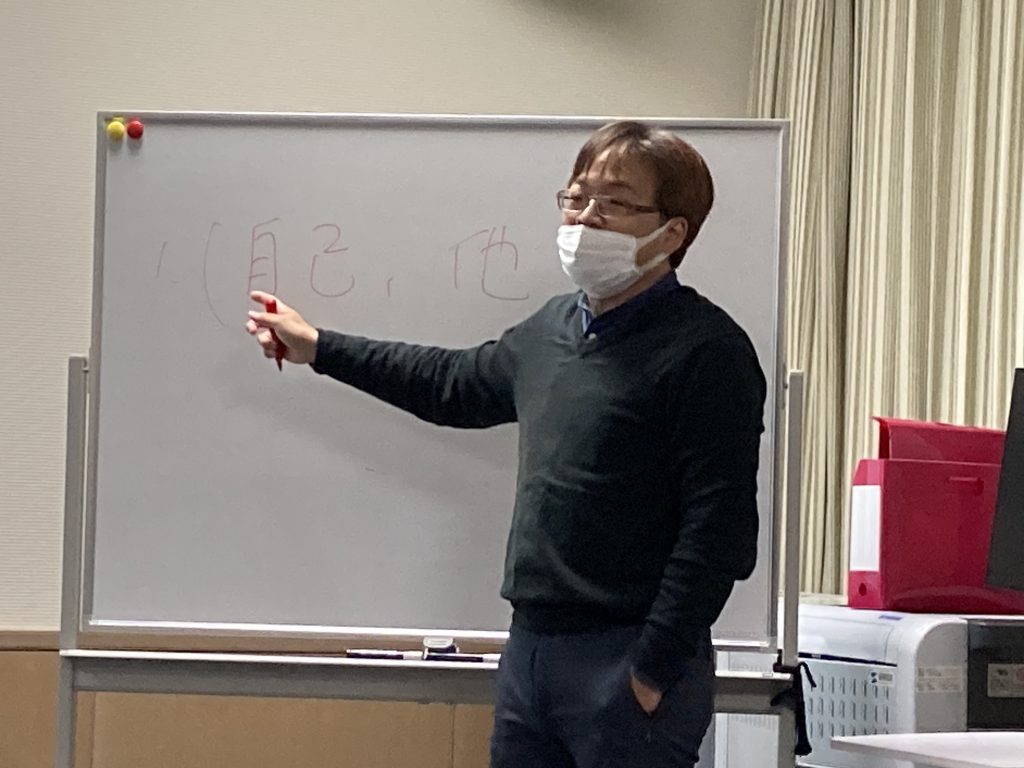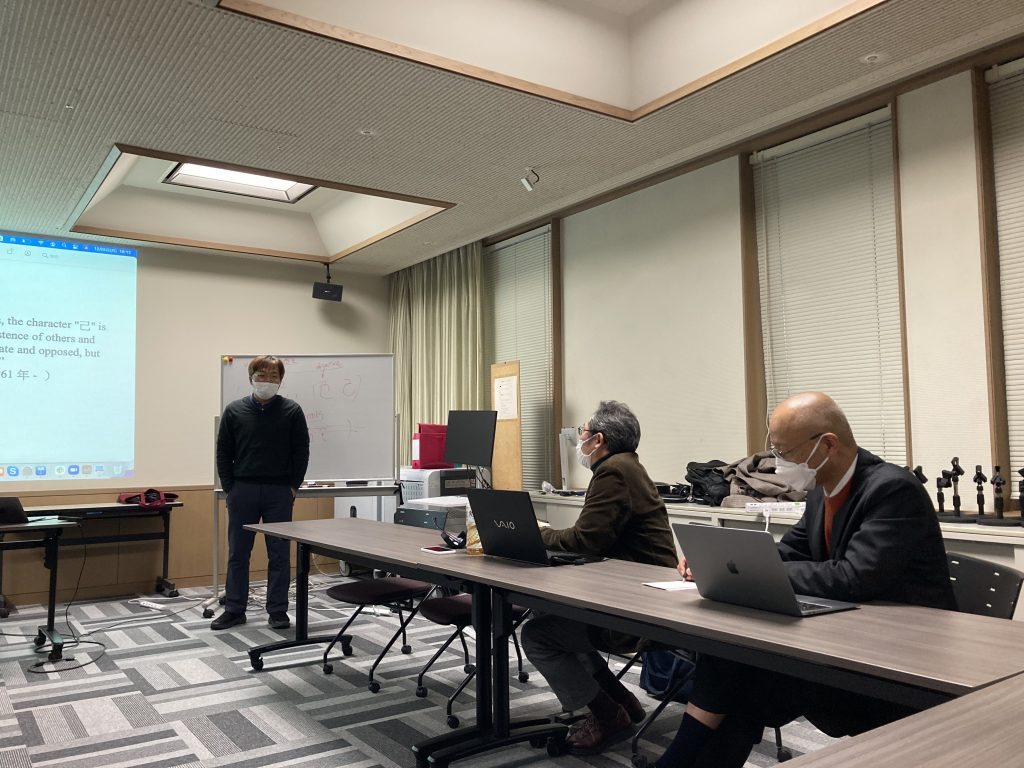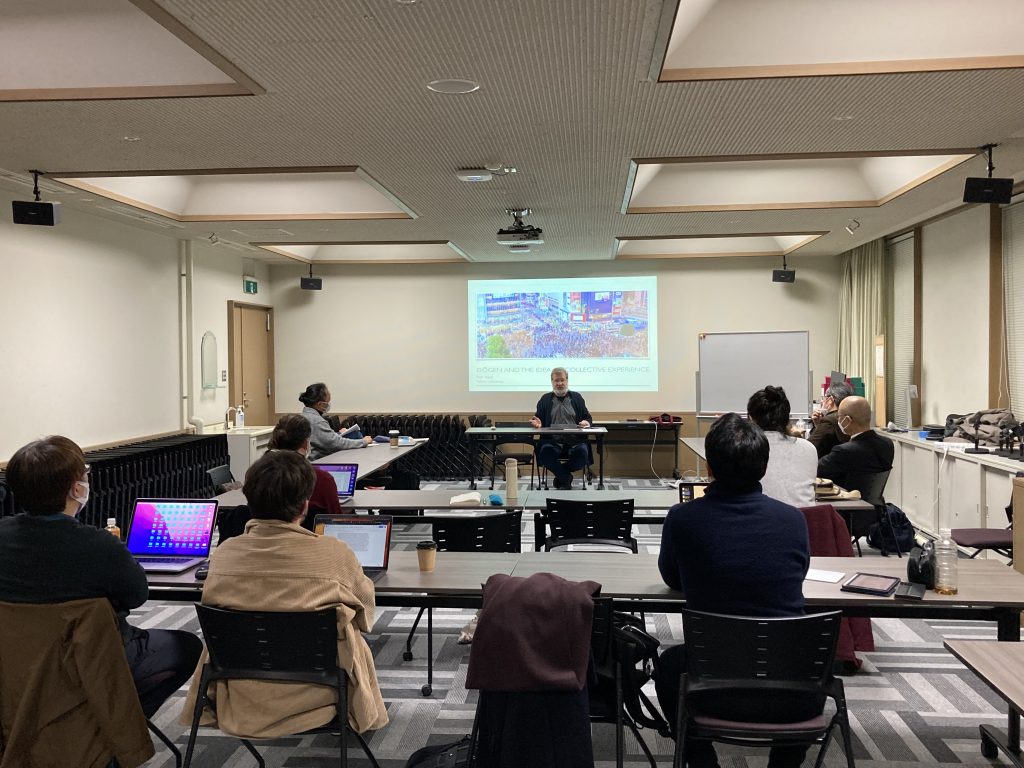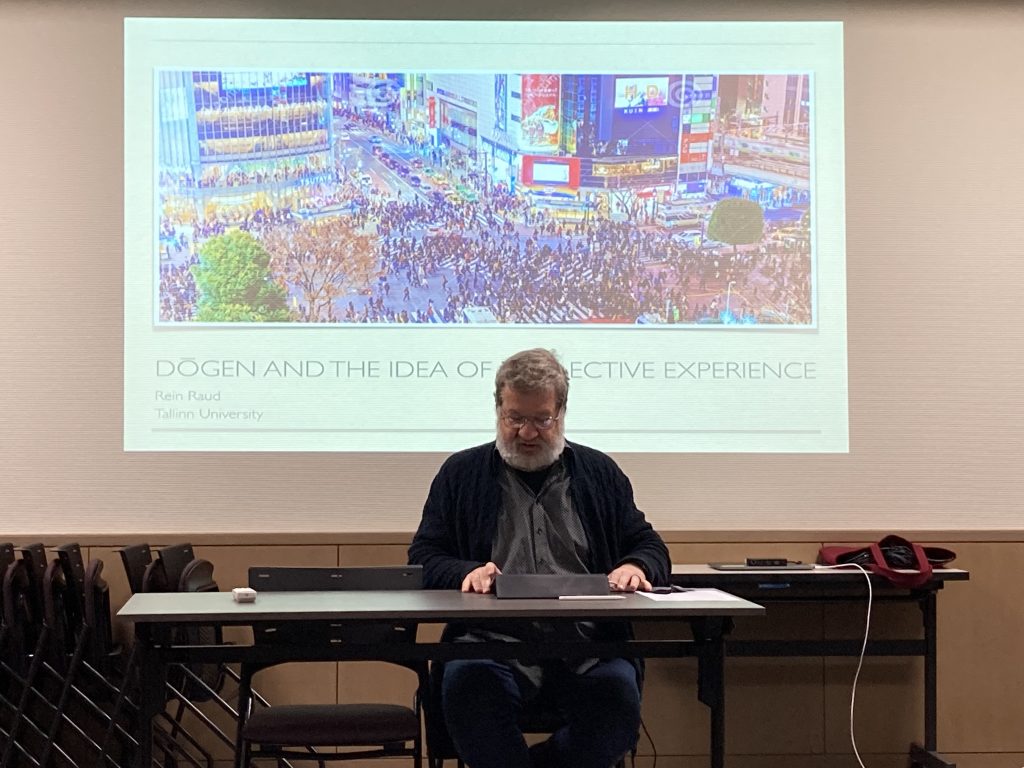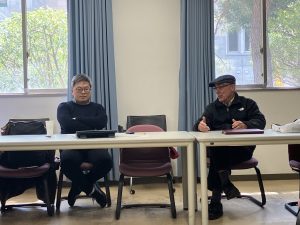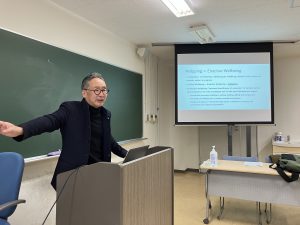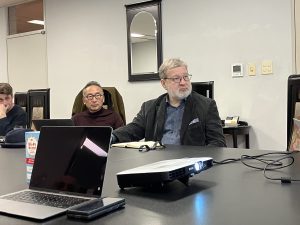“Dōgen on WE, I, Self & Other Enigmas” ワークショップを、本プロジェクト比較WE学グループとCAPE(京都大学大学院文学研究科 応用哲学・倫理学教育研究センター)との共催で行います。
“Dōgen on WE, I, Self & Other Enigmas” ワークショップ
日時:2022年12月5日(14:00-18:00)
会場:京都大学吉田キャンパス文学部校舎地下大会議室
発表者:出口康夫、Rein Raud、Felipe Cuervo、Hsun-mei Chen
概要:While being co-hosted by CAPE (Center for applied philosophy and ethics, Graduate School of Letters, Kyoto University), this workshop is organized for the Comparative WE group of the JSPS project, but open to all members and even non-members of the JSPS/JST projects.
The main questions to be discussed include how to explore Dōgen’s ideas of WE, I, self and other important philosophical themes such as the world, body, vulnerability and how to reactive them for the contemporary intellectual milieu and social issues such as smartization of our community.
プログラム
14:00-14:40 出口康夫 Self-as-Anything: 道元における「自己」「世界」「他者」
14:40-15:20 Felipe Cuervo The Unremarkable Transcendence of Everyday Life: Dōgen and Isasi-Díaz on Day-to-Day Liberation
15:20-15:35 休憩
15:35-16:15 Hsun-mei Chen A We-turn on Dōgen’s Philosophy
16:15-16:55 Rein Raud Dōgen’s views on Buddha-nature and the collective experience
16:55-17:00 休憩
17:00-17:50 Discussion
各発表のアブストラクトは以下の通りです。
出口康夫: Self-as-Anything: 道元における「自己」「世界」「他者」
本発表は、道元の「自己」および「自己」と「世界」の関係、「自己」と「他者」の関係に関する考えを明らかにし、それらが如来蔵思想、具体的には『大乗起信論』の「真我」(現代風に言えば「真なる自己」)概念の哲学的洗練化として解釈できることを目指す。そのため本発表は、現代の分析形而上学の概念装置である「トロープ(trope)」即ち「特殊化(例化)された抽象」を援用し、道元の「仏性」概念を「仏性トロープ」と解釈することで、道元の「真なる自己」に対して「出来事としての自己(Self-as-Event)」「行為としての自己(Self-as-Action)」「トロープとしての自己(Self-as-Trope)」「任意の者としての自己(Self-as-Anyone)」 「任意の物としての自己(Self-as-Anything)」という五つの定式化を与え、上記の課題を果たすことを目指す。
Rein Raud: Dōgen’s views on Buddha-nature and the collective experience
In the Bendōwa, Dōgen famously speaks about how the mind of a practitioner — “just one person engaged in zazen at one moment” — is united through this experience with everything and everyone, and in the Genjōkōan, he calls this experience “dropping off the bodymind” (shinjin datsuraku) of oneself as well as all others. Throughout the “Core Transmission”, this same experience has been described as what “the Buddhas and ancestors” have all been teaching, and the Busshō fascicle presents in more detail Dōgen’s views on the relations between the particularity of the individual human being and the universal Buddha-nature that characterizes all existence. When put together, these ideas point to the notion of collective experience at the heart of Dōgen’s thought. My talk will elaborate on this notion and also argue that such experience should not be understood as a mystical communion with higher spheres, but as a wholly rational mode of adjusting one’s way of being in the world as well as one’s attitude toward one’s surroundings.
Felipe Cuervo: The Unremarkable Transcendence of Everyday Life: Dōgen and Isasi-Díaz on Day-to-Day Liberation
At first glance, it seems strange that philosophers as worried about enlightenment, liberation from pain, breaking away from the world of attachment/oppression, etc., as Dōgen and Ada María Isasi-Díaz dedicate so much of their time and effort to discussions of the most ordinary of our everyday activities. And yet both philosophers argue that it is precisely in such details that enlightenement and/or liberation is to be found. I intend this presentation to be mainly a work in comparative philosophy, trying to make sense of both Dōgen and Isasi-Díaz by contrasting their arguments and perspectives on the metaphysics of everyday life and its ethical (perhaps soteriological) components, though I will also argue for the general validity of some of their views, and sketch a contemporary metaphysics of daily life that accounts for their insights.
Hsun-mei Chen: A We-turn on Dōgen’s Philosophy
One common theme in contemporary Dōgen studies is to reveal how Dōgen understood the true self, and usually, the discussion on the true self also pertains to how Dōgen understood Buddha nature (佛性). Moreover, the Japanese Zen school founded by Dōgen, Sōto, has been categorized as a school advocating the idea of self-power (自力). Therefore, it seems the self plays a crucial and fundamental role in Dōgen’s philosophical enterprise. Nevertheless, the number of appearances of Ware (ワレ) and Zigo (自己) in Dōgen’s Shōbōgenzō (正法眼藏), Pure Rules of Eihei (永平清規), and Advice to Students of the Way (學道用心集) are 496 times, which is much lesser than the total numbers of syū (眾, 1155 times) and gun (群, 52 times) in those texts. Of course, the numbers do not necessarily imply the importance, but those usages of syū and gun indicate that at least the group or we are not just peripheral concepts in Dōgen’s system. To argue for the importance of the concept of we in Dōgen’s philosophy, I would first present how Dōgen uncommonly provided four terms: ujou (有情),syujou (眾生), gunjou (群生), gunrui (群類), gunu (群有) to explain Buddha nature at the beginning of Busshō chapter and how he associates Buddha-nature with his unique definition of we. Then I will show how Dōgen establishes the monastic rules and even Zazen practice based on Buddha nature and the concept of we.
参加をご希望の方は、Smart WEプロジェクト事務局(smart-we.office[at]bun.kyoto-u.ac.jp)までご連絡ください。
イベントは終了いたしました。
